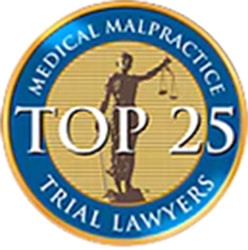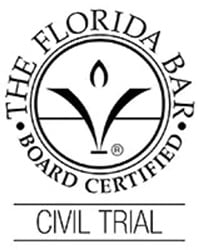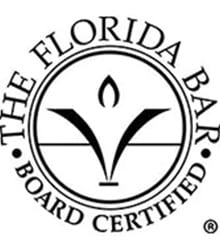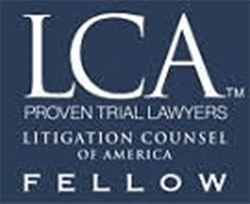Key Takeaways
- Immediate medical attention and detailed documentation of symptoms and treatments are crucial after suspecting a misdiagnosis to safeguard health and support potential legal claims.
- Seeking a second opinion from another qualified medical professional is essential to confirm the accuracy of a diagnosis and ensure appropriate treatment.
- To establish medical negligence in misdiagnosis cases, patients must demonstrate a clear duty of care, breach of duty, causation, and resulting damages, highlighting the importance of comprehensive medical records.

Medical Treatment Gone Wrong? Let Us Help You
Medical Treatment Gone Wrong? Let Us Help You
Get your FREE & confidential case review todayImmediate Steps to Take After a Misdiagnosis
Suspecting a misdiagnosis? Seek immediate medical treatment as soon as possible. If your condition worsens after a doctor’s visit, go to an emergency room or urgent care promptly. Acting swiftly can prevent further harm and ensure that your first priority is to receive necessary treatment.
Begin recording every detail of your treatment and initial diagnosis. Documenting your medical journey is invaluable for proving potential medical negligence. Note symptoms, medications prescribed, and communications with healthcare providers. These records can clarify the misdiagnosis and its impact on your health.
Discuss your previous doctor’s actions and the suspected misdiagnosis with your new physician. This aids in obtaining an accurate diagnosis and ensures your new doctor is informed about your medical history. These steps safeguard your health and strengthen your position for a potential medical malpractice lawsuit, especially if your doctor failed to provide the correct treatment.
Seeking a Second Opinion
If you suspect a misdiagnosis, seek a second opinion from another qualified medical professional or doctor. This reduces the chances of an incorrect diagnosis and ensures appropriate treatment, leading to a correct diagnosis and potentially avoiding a wrong diagnosis. Doctor misdiagnoses can be addressed more effectively with the help of telemedicine, which now makes it easier to consult specialists from home.
Be aware of potential biases, such as collegial bias, which may influence recommendations. Providing comprehensive medical history documentation helps form a robust case when seeking a second opinion. This step aids in obtaining an accurate diagnosis and strengthens your position for potential legal action.
Understanding Medical Malpractice
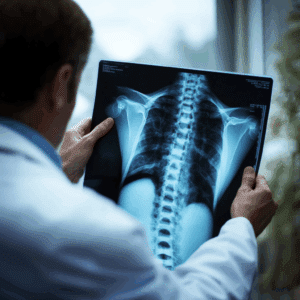
Establishing negligence requires showing that the doctor’s misdiagnosis caused injury or harm. Physicians failing to meet the reasonable standard of care during diagnosis can be held liable for medical negligence. Misdiagnosis can lead to severe consequences, including physical harm, emotional distress, and long-term disabilities.
Compensation from a misdiagnosis lawsuit can cover medical expenses, lost wages, and emotional distress. Medical misdiagnoses may lead to life-threatening treatment delays, highlighting the importance of holding healthcare providers accountable.
Defenses may argue that a competent provider would not have made a different diagnosis, showcasing the complexity of these cases.
Collecting and Reviewing Medical Records
Medical records are crucial for supporting your claims and proving a doctor-patient relationship and prior medical care. Gather and keep all your medical records, including notes, imaging, and prescriptions. These documents provide concrete evidence of treatments received and help establish a timeline of events leading to the misdiagnosis.
Strong medical records and documentation are indispensable for building a solid malpractice case. Request all medical records from healthcare providers, as they form the backbone of your legal claim. Detailed records can be the difference between a successful and unsuccessful malpractice case.

Medical Treatment Gone Wrong? Let Us Help You
Medical Treatment Gone Wrong? Let Us Help You
Get your FREE & confidential case review todayConsulting a Medical Malpractice Lawyer
Due to the complexities of medical malpractice claims, promptly seek a qualified attorney after a misdiagnosis. Schedule a consultation with a medical malpractice lawyer for a free case evaluation to explore legal options and understand your rights regarding a medical malpractice suit. Initial consultations are often free, and legal fees typically depend on winning the case.
Bring all relevant medical documentation to the initial consultation. A medical malpractice lawyer and their legal team can help navigate the legal landscape, ensuring your voice is heard and your rights are protected. Consider scheduling a free consultation to discuss your case.
Contacting a law firm like Zoeller Law can provide legal help to pursue justice for harm suffered due to a misdiagnosis in personal injury law.
Proving Medical Negligence
Proving medical negligence involves establishing four key elements: Duty of Care, Breach of Duty, Causation, and Damages. Each element must be clearly demonstrated to build a strong malpractice case.
Duty of Care is established by proving a formal doctor-patient relationship, creating a legal obligation for the doctor to provide a certain standard of care. Breach of Duty is demonstrated by showing the healthcare provider’s actions fell below the accepted medical standard, indicating negligence.
Linking Causation and Damages requires proving that the misdiagnosis directly caused harm and resulted in measurable damages.
Establishing Duty of Care
Duty of care is a legal obligation for healthcare providers to offer a certain standard of care to their patients. This duty is established through a formal doctor-patient relationship, legally binding the doctor to act in the patient’s best interest. Without proof of this relationship, holding the physician accountable in legal cases of misdiagnosis is challenging.
Establishing this relationship is critical as it determines the legal and ethical responsibilities of the healthcare provider toward the patient.
Demonstrating Breach of Duty
A breach of duty occurs when a healthcare provider’s actions fall below the accepted medical standard, indicating negligence. This is proven by showing that a reasonably competent doctor would have acted differently in similar circumstances.
Honest mistakes are insufficient; there must be a clear deviation from the standard of care.
Linking Causation and Damages
To link the misdiagnosis and the harm suffered, it must be shown that the misdiagnosis directly caused the injury. Expert testimony is often required to connect the misdiagnosis to the suffered harm and quantify financial impacts.
Both economic and non-economic damages are considered in a medical malpractice claim. Economic damages include measurable losses like additional medical expenses and lost wages, while non-economic damages cover pain and suffering. Proving that the misdiagnosis resulted in actual damages is essential for a successful claim.
Common Conditions Frequently Misdiagnosed
Heart attacks, certain types of cancer, and Lyme disease are common medical conditions prone to misdiagnosis. A heart attack is often misdiagnosed as indigestion or panic attacks, while various cancers can be mistaken for benign conditions. Symptoms of Lyme disease may be confused with flu or depression, and thyroid disorders like hypothyroidism can resemble depression.
Multiple sclerosis may be misdiagnosed as fibromyalgia or migraines due to symptom overlap. Emergency room physicians often face challenges like time pressure and symptom overlap, leading to misdiagnosis. Seeking a second opinion is vital if a misdiagnosis is suspected, as biases may affect diagnostic accuracy.
Legal Time Limits for Filing a Claim
If pursuing legal action, be aware of the time constraints for filing a claim. Statutes of limitations for malpractice suits vary by state and may include a discovery rule for when a patient learns of the injury. In Florida, medical malpractice claims must be filed within two years of the incident.
Understanding the legal processes involved, including filing deadlines and court procedures, is vital for navigating a medical malpractice lawsuit. Some states allow a longer time limit if the injury is not discovered immediately, typically extending to three years.
Expert witnesses are essential in a medical malpractice case to establish a doctor’s liability and assess the long-term effects of injuries. Gathering evidence is crucial for supporting your claim in a medical malpractice lawsuit.
Potential Outcomes of a Misdiagnosis Lawsuit
A misdiagnosis must result in meaningful injury or a worsened medical condition to be considered actionable. To succeed in a malpractice lawsuit, a patient must demonstrate that the medical provider’s negligence directly caused their injury.
Damages in misdiagnosis cases can include additional medical expenses and loss of income due to treatment delays. The lost chance doctrine allows claims based on the premise that a more timely diagnosis could have improved recovery chances.
Frequently Asked Questions
What should I do immediately after suspecting a misdiagnosis?
Upon suspecting a misdiagnosis, it is crucial to seek immediate medical treatment and document all relevant details concerning your diagnosis and treatment history. Additionally, inform your new physician about the previous doctor’s actions.
How important is it to get a second opinion?
Obtaining a second opinion is crucial as it can greatly reduce the risk of an inaccurate diagnosis and help confirm the most suitable treatment plan. Taking this step fosters informed decision-making regarding your healthcare.
What constitutes medical malpractice in cases of misdiagnosis?
Medical malpractice in cases of misdiagnosis occurs when a healthcare provider fails to accurately diagnose a condition, resulting in harm to the patient. This includes incorrect, missed, or delayed diagnoses that negatively impact the patient’s health.
How can I prove medical negligence?
To prove medical negligence, you must establish that there was a Duty of Care owed by the medical professional, a Breach of that Duty, a direct Causation linking the breach to your injury, and the Damages you incurred as a result. Fulfilling these criteria is essential for a successful claim.
What are the legal time limits for filing a medical malpractice claim?
The legal time limits for filing a medical malpractice claim typically range from two to six years, depending on the state, with some states allowing extensions for undiscovered injuries. It is essential to be aware of these timelines to ensure your claim is valid.

Medical Treatment Gone Wrong? Let Us Help You
Medical Treatment Gone Wrong? Let Us Help You
Get your FREE & confidential case review today




